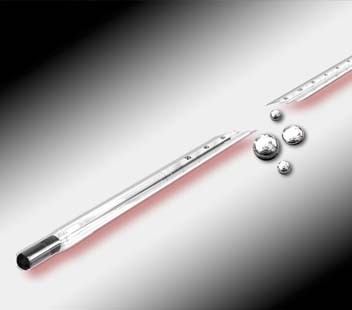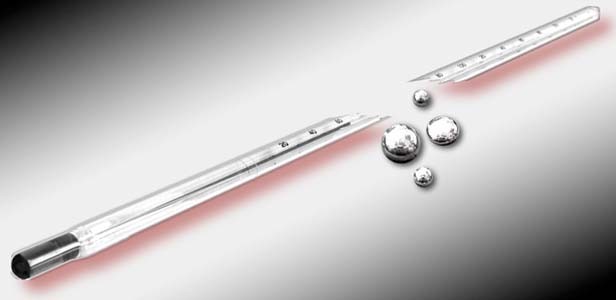Illinois environmentalists, manufacturers and lawmakers are turning up the heat in the fight against mercury pollution. The Mercury Thermostat Control Act, passed unanimously by the House and Senate, requires manufacturers to collect and recycle the mercury in older thermostats.
Mercury, an element in the earth’s crust that expands in response to changes in temperature or pressure, has traditionally been used to make products like thermometers, thermostats and automobile switches. If a thermostat is thrown away and ends up in a landfill, it can break, leaking the mercury into the soil and eventually the groundwater. Emissions from coal-burning power plants release mercury into the air, which also eventually settles in water.
According to the U.S. Environmental Protection Agency, mercury exposures at high levels can harm the brain, heart, kidneys and lungs, particularly impairing neurological development. Eating fish from mercury-contaminated lakes can increase exposure. It is especially dangerous for pregnant women and young children, who are advised by the Illinois EPA not to eat fish from these lakes more than once a week.
Only about one-seventieth of a teaspoon of mercury can contaminate a 20-acre swath of lakes, says Senator Heather Steans, D-Chicago, who sponsored the Senate version of the bill. The average mercury thermostat contains about four grams of the element.
“We’re working with manufacturers to keep our land and water safe and to conserve our resources for future generations,” Steans says. “This is a policy that Illinois should be proud of.”
Illinois will be the eighth state to pass this legislation, which aims to collect 15,000 thermostats a year. Starting in July 2011, all mercury-containing thermostats must be disposed of at special drop-off sites, likely located at local government buildings or heating, ventilation and air conditioning (HVAC) retailers.
The bill focuses mostly on commercial remodeling companies, says Doug Scott, director of the Illinois EPA. Most mercury thermostats are removed by HVAC technicians during building renovations, he says. The EPA will also make an effort to publicize the program so do-it-yourself home renovators are aware of the changes, Scott says.
Currently, a volunteer collection program garners about 4,500 thermostats a year. EPA will administer the collection process, which includes a $500 fine for each violation. After the first three years, EPA will work with manufacturers to increase the collections.
This is a no-cost program, says Mark Denzler, vice president of government affairs and CEO of Illinois Manufacturers Association. Only manufacturers will pay the cost of disposal.
Regulated disposal will have a positive impact on the environment, says Melville Nickerson, policy advocate for the Environmental Law and Policy Center. It’s not known exactly how much the law will reduce mercury levels in water, but thermostats are the largest mercury-containing product whose disposal is still unregulated.
Animals that eat fish are also affected by high doses of mercury, including reduced fertility, slower growth and developmental and abnormal behavior that effects survival, the U.S. EPA says.
“This is a common sense approach to keep toxins out of our soil and water,” Nickerson says. “It’s a bill that environmentalists, manufacturers and the entire General Assembly could agree on.”
The manufacturing community supports the stricter stance on mercury, Denzler says.
“The EPA has set tough, aggressive goals, but we’re committed to meeting them,” Denzler says.
Contact Diane Ivey at [email protected].

















